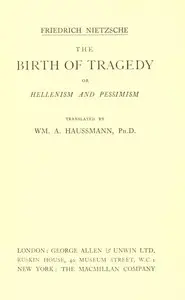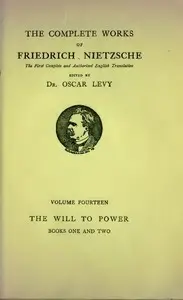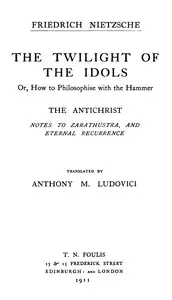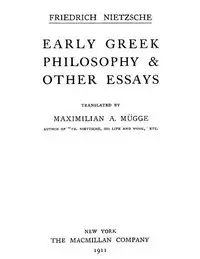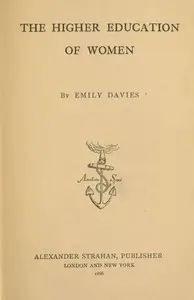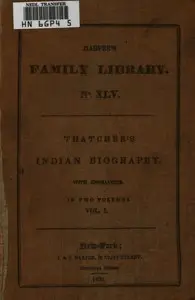"Ecce Homo" by Friedrich Wilhelm Nietzsche is an autobiographical work written in the late 19th century. The book serves as Nietzsche's reflection on his life and philosophy, presenting a profound self-analysis as he prepares to confront the cultural and philosophical landscape of his time. Through a series of thematic chapters, such as "Why I am so Wise" and "Why I Write Such Excellent Books," Nietzsche delves into his understanding of himself as an individual and philosopher, aiming to reshape values in a manner that counters the prevailing ideals of society. The opening of "Ecce Homo" introduces the reader to Nietzsche’s distinctive voice and his characteristic blend of bravado and vulnerability. He begins by setting the stage for a personal narrative that emphasizes his unique perspective on existence and suffering. Nietzsche reflects on his health, his philosophical insights, and the interplay between his life's experiences and the creation of his ideas. He acknowledges the complexity of his identity shaped by illness, solitude, and the rich tapestry of his heritage, suggesting that his ability to perceive life from both a position of strength and a state of decay forms the bedrock of his wisdom. His self-portrayal is both candid and provocative, positioning himself against conventional morality while asserting the nobility of his philosophical endeavors. (This is an automatically generated summary.)
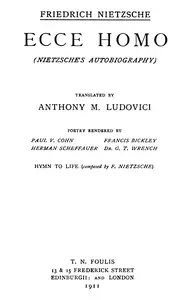
Ecce Homo Complete Works, Volume Seventeen
By Friedrich Wilhelm Nietzsche
"Ecce Homo" by Friedrich Wilhelm Nietzsche is an autobiographical work written in the late 19th century. The book serves as Nietzsche's reflection on ...
Friedrich Wilhelm Nietzsche was a German classical scholar, philosopher, and critic of culture, who became one of the most influential of all modern thinkers. He began his career as a classical philologist before turning to philosophy. He became the youngest person to hold the Chair of Classical Philology at the University of Basel in Switzerland in 1869, at the age of 24, but resigned in 1879 due to health problems that plagued him most of his life; he completed much of his core writing in the following decade. In 1889, at age 44, he suffered a collapse and afterward a complete loss of his mental faculties, with paralysis and probably vascular dementia. He lived his remaining years in the care of his mother until her death in 1897, and then with his sister Elisabeth Förster-Nietzsche. Nietzsche died in 1900, after experiencing pneumonia and multiple strokes.



